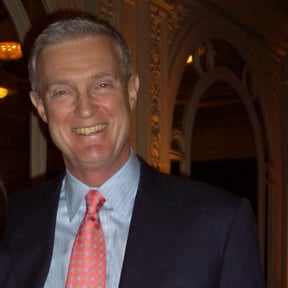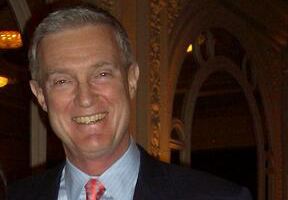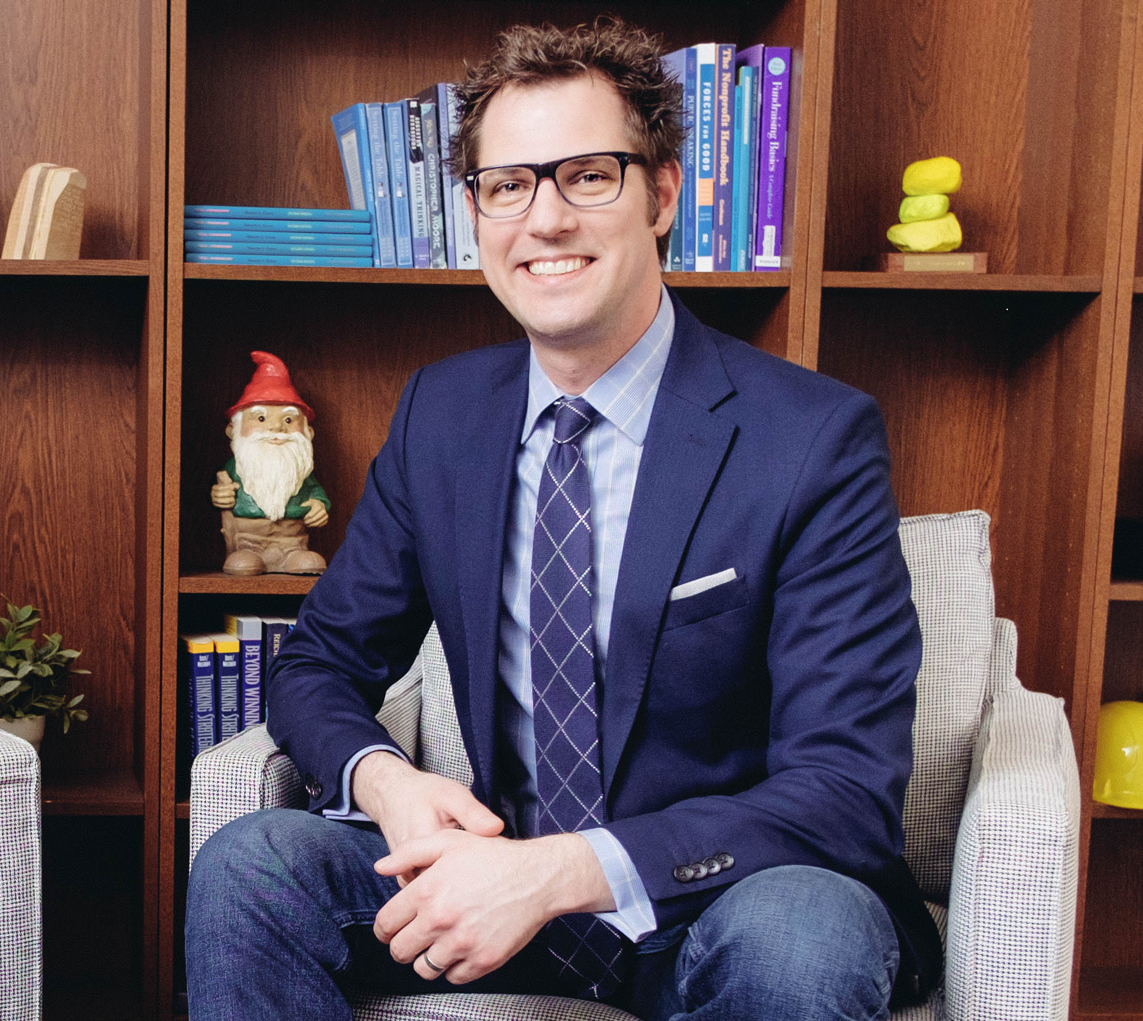In Thanks of Mentors
Big Ideas | How We Work | Mentorship | People Operations | Gratitude

Over the weekend, I learned that one of my longtime mentors — Steve Morris — passed away from cancer at the end of July. Not knowing this at the time, I emailed him in August to see if he had any availability to meet up for our semi-annual breakfast this fall.
After not hearing from him, I grew concerned. Usually if he was traveling, he’d send a quick email and we’d reconnect upon his return. This wasn’t like Steve, so I Googled his name and hesitantly typed “obituary,” hoping that the search would turn up empty. Then, I sat there with tears welling up in my eyes as I saw his picture and a loving tribute. Steve Morris was my mentor and a friend for almost 15 years.
Steve didn’t come through a formal mentorship program, nor do I think I ever called him my mentor to his face. (I mean, I certainly *thanked* him, but didn’t say, “Thanks for meeting me, mentor.”) Neither did I wake up one day and say, “I need to go out and get some mentors.” Steve was a board member of mine when I was a young, idealistic (or perhaps “naive” is the appropriate word), Executive Director at The Parsons Dance Company. When I left that role, we stayed in touch. He was generous with his time and insights. He took an interest in what I was doing and the companies where I worked. And he appreciated that I would often thank him in later years with a bottle of difficult-to-locate bourbon.
Other people I consider part of my mentor crew came into my life in similar ways. Some of them include a college professor who I had for only one class but who has remained a mentor for over 20 years. A friend’s husband who worked in pharmaceuticals and shared a love of NY1 (and who himself was taken away too early by cancer). Another former board member who influenced my thinking and career trajectory by introducing me to the field of organizational psychology and the research behind finding meaning in one’s work. And a friend who I’ve had the great fortune of working with for almost nine years.
Be careful whose advice you buy, but be patient with those who supply it.
A great mentor can be with you, guiding you for the long haul. They often knew you “back when,” and help you develop into who you become. They see your struggles, and nudge you in a helpful direction every now and again. They make you think differently about things, and help you consider ideas and perspectives that don’t come naturally to you. And by and large, they have a generosity of spirit that makes them willing to do all of this in the first place.
Learning of Steve’s death caused me to reflect on some thoughts about mentors, and what makes for a fruitful partnership:
- Great mentors can come from anywhere and be nearly anyone. You just need someone who is more experienced in an area.
- Relationships can be bidirectional. I’ve learned quite a lot from my mentors and, in turn, taught them way more than they ever asked about the Tour de France and the differences between donuts and *artisanal* donuts.
- The best mentor relationships develop over time into just that. Otherwise they’re usually called acquaintances.
- Be mindful of people’s time, and take the hint if they’re not as into you as you are into them. Not every relationship was bound for a beautiful mentorship. (Uh, dear mentors of mine, please let me know if I’m not getting your hints.)
- Offer to pick up the tab for coffee or breakfast, unless your tug-o-war for the check becomes too awkward to continue, then pull harder on it next time.
- Consider bringing a gift of some sort to say thank you — brown spirits, red wine, or champagne are my frequent “go to” gifts; baked goods when I was earlier in my career— because, you know, it’s a token that shows you care. In lieu of, or in addition to gifts, give them a sincere and specific thank you.
- Come prepared with specific challenges and questions, and don’t neglect to demonstrate an interest in *them*.
- Bring a sincere interest to learn and to better yourself, to look at and question your shortcomings and blind spots, with no expectation of anything in return from your mentor except their insights. (Mentorships shouldn’t be approached as a sly way of getting a job. It will be abundantly apparent if you try.)
- Give them space. One or two meaningful conversations a year are likely to be more beneficial over time than getting together on a monthly basis. Allow time for things to develop so you’ll have new, meaty material to discuss the next time around.
- A mentor doesn’t need to be older than you.
Several years ago, I published twenty-five interviews with leaders from a variety of sectors. The interviews centered around how to attract and retain great people in organizations. Having lost two of the mentors who I interviewed, it now turns out to be an opportunity for me to spend a few more minutes with them, hearing their voice, and revisiting their advice. It’s also a way for me to share their insights with those who now will never meet them.
Years ago, I was having breakfast with Steve and asked him about how he managed his time in the constant battle of the urgent versus the important. He explained his simple approach that I still use to this day. Steve used his morning commute to walk through his day, thinking about the purpose of each activity and meeting, and what he needed from each. “You see, young(er) Tim Cynova, if you don’t know what you want to get out of a meeting, or your day for that matter, you’ll have a tough time knowing if, or when, you’ve ever achieved it.”
Thank you, Steve Morris, for your kindness, your insights, generosity, and caring. And thank you to all those who I’m humbled to call my mentors.
About Tim Cynova
Tim wears a multitude of hats, all in service of creating anti-racist workplaces where people can thrive. He currently is co-CEO of Fractured Atlas (an entirely virtual organization with staff spread across multiple states and countries) and a Principal of the consulting group Work. Shouldn't. Suck. He serves on the faculty of Banff Centre for Arts & Creativity and The New School teaching courses in People-Centric Organizational Design; he's a trained mediator, and a certified Senior Professional in Human Resources (SPHR). Earlier in his career, Tim was the Executive Director of The Parsons Dance Company and of High 5 Tickets to the Arts in New York City, had a memorable stint with the Cincinnati Symphony Orchestra, was a one-time classical trombonist, musicologist, and for five years in his youth he delivered newspapers for the Evansville, Indiana Courier-Press. Also, during a particularly slow summer, he bicycled 3,902 miles across the United States.


